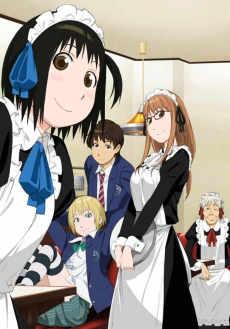SOREDEMO MACHI WA MAWATTEIRU
STATUS
COMPLETE
VOLUMES
16
RELEASE
October 28, 2016
CHAPTERS
138
DESCRIPTION
There is a small maid cafe that nearly nobody goes to – Maid Cafe Seaside, quiet enough for Sanada to do his homework in. His airheaded classmate Arashiyama works as the cafe’s only maid, even though she sure doesn’t act like one. What happens when her friends stop by for a visit?
(Source: Manga Planet)
Notes: Nominated to the 22nd Annual Tezuka Osamu Cultural Prize.
CAST

Hotori Arashiyama
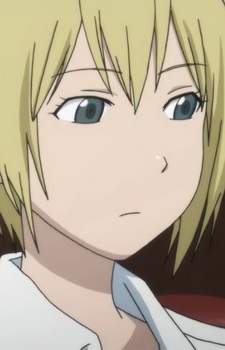
Futaba Kon
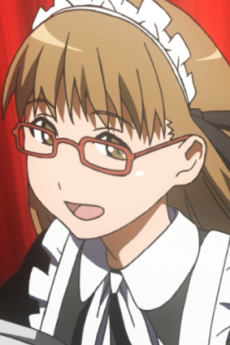
Toshiko Tatsuno
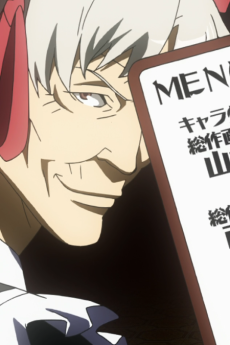
Uki Isohata
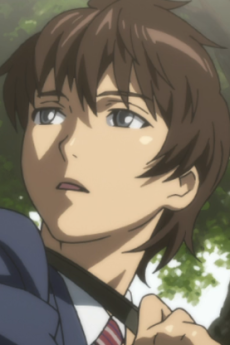
Hiroyuki Sanada
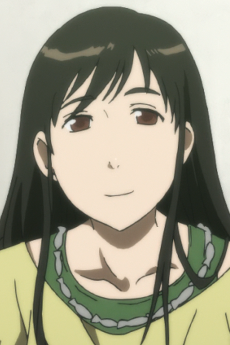
Shizuka Kameidou
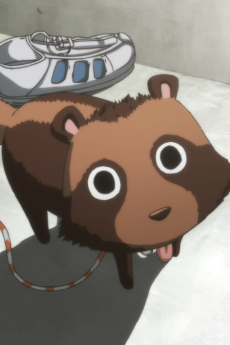
Josephine
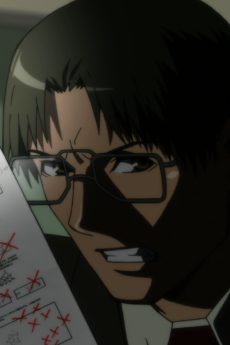
Natsuhiko Moriaki
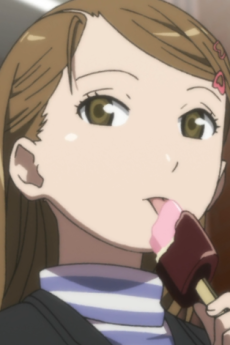
Eri Isezaki
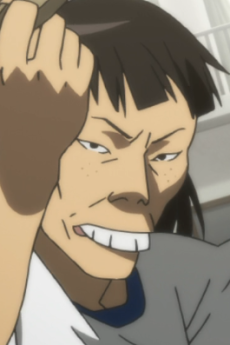
Harue Haribara

Yuuji Sanada
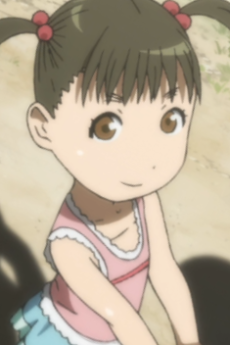
Yukiko Arashiyama
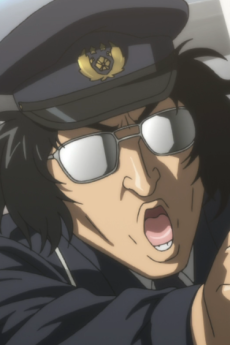
Shunsaku Matsuda
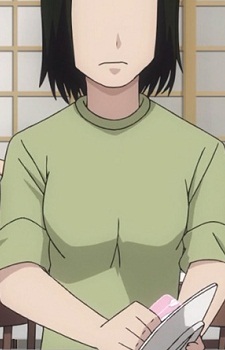
Yukimi Arashiyama

Nishi
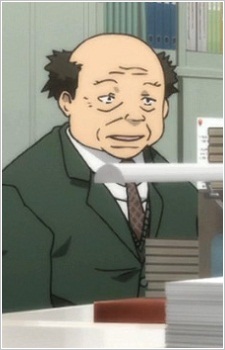
Kameda

Tsutomu Serizawa
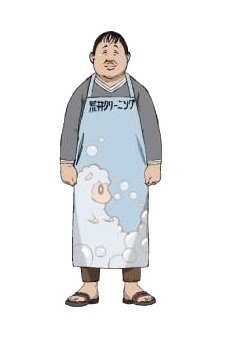
Kazutoyo Arai
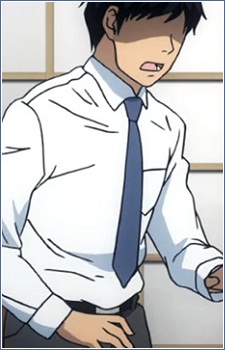
Ayumu Arashiyama
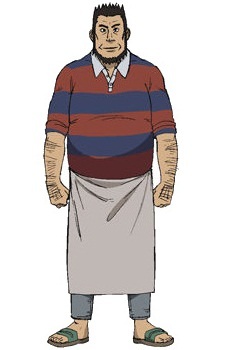
Takanori Kikuchi
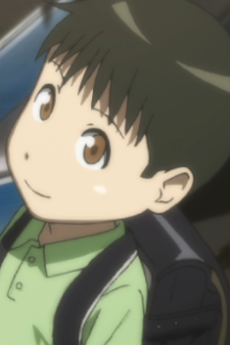
Takeru Arashiyama
CHAPTERS
RELATED TO SOREDEMO MACHI WA MAWATTEIRU
REVIEWS

saulgoodman
90/100Piping hot with comedy, mystery, supernatural & a dysfunctional maid detective; the town, indeed, keeps moving.Continue on AniListDuring my on-going quest to complete Studio SHAFT's (ALL CAPS WHEN YOU SPELL THE NAME) works recently, I had a very fortunate encounter with And Yet, The Town Moves. But to save the anime review for another time, I'm grateful to Shinbou and the other SHAFT staff for such a great adaptation of a great series. Their trademark unconventional directing complemented its quirkiness and mystification, successfully getting me to read the manga after finishing the anime. And as a heavy slice-of-life consumer, I was not disappointed.
Skip to the end for a short, spoiler-free review

Maid-o! Despite its mundane premise, And Yet, The Town Moves is anything but. After reading for a few volumes, you'll be sure to notice the various quirks and dysfunctionality of this series.
And Yet, The Town Moves is a steaming hotpot of jumbling genres, ingredients including slice-of-life, mystery and supernatural. And with its rich plot and characters, And Yet, The Town Moves relentlessly assaults the readers with many peculiar and humorous subplots. Admittedly, I found the supernatural aspect somewhat lacking compared to its other two genre peers. However, that didn't hinder my appreciation and enjoyment of its slice-of-life and mystery in the least.
Before discussing any of that, however, it's invaluable to mention that the story is in unchronological order. Meaning, it's roughly an episodic series at first glance but has connecting threads. Whether you see this as an incohesive mess or a fun puzzle, like me, is entirely understandable. After reading for a few dozen chapters, you'll notice that the story is indeed out of order, from small details like Arashiyama's hair changing length or character dynamics suddenly regressing or progressing. I heard that the author included, or someone figured out the chronological order of events but I haven't discovered it.
And Yet, The Town Moves excels as a comedic slice-of-life. Initially limited to Arashiyama's trivial goof-offs in Café Seaside and at school, the series expands to a number of different plotlines as it progresses. There's some short-and-sweet, like Uki's late husband wandering around, and others that grow with time, such as Takeru and Eri's budding romance. And contrary to the general lighthearted nature, it'd be a bit of a disservice to call And Yet, The Town Moves bombastic. There's occasionally an unexpected emotional quaintness, adding depth to the characters development, then immediately shying away from that short burst of pathos, and returning back to the comedy. To lightly speak on it, the characters heavily uphold the situational comedy. Their varying personalities and compatible dynamics with many others guarantee that even characters who rarely interact will muster a smirk or two from the readers. In short, contrary to the mundanity of town life, And Yet, The Town Moves easily manages to depict a fictitious world bustling with the lives of its many fun residents and their daily situations that often go out-of-hand.
Before talking about the mystery aspect, it's again worth noting the unchronological order of events in this series. This unorthodoxy may put some readers off, but I enjoyed it and found it added depth to the dysfunctionality and mystery. And who better embodies these two elements than the enigmatic maid herself? Arashiyama's dream to become a detective and her passion for mystery novels frequently serves as chapter plots, shining a surprisingly adept light on her otherwise goofy character. The mysteries are usually mundane, revolving around school, the café or home, yet very entertaining to witness unfold and conclude due to Arashiyama's erratic behavior.
My least favorite genre aspect is the supernatural. It's lacking compared to the other two, understandably so in order to supplement the mystery aspect. The few supernatural subplots were entertaining enough for me to yearn for more, but only to receive a disappointingly lack of. The aliens and time-travel were entertaining and interesting chapters, but I found the whole "God-gives-you-the-red-or-blue-pill" situation towards the end somewhat lackluster and a cheesy attempt to conclude the story.

Kon and Arashiyama Though And Yet, The Town Moves tends to not stray away from its comedic essence, the most defining of its shy sentimental side is Futaba Kon's development, both in her character and relationship with Arashiyama.
Kon isn't thoroughly characterized outside of her rock-and-roll passion, pseudo-delinquency, and immense ping-pong talent for some time. Though, not to suggest that this makes her a bland character. Her screen-time goofing off with Arashiyama and her personality flipping between low-strung and irritated made for entertainment. However, as the story progresses later on, her characterization blooms and development made more apparent as her screen-time occasionally detaches itself from the comedic tone and delves into Kon's lonely, walled-off world.
Because Arayshiyama's the protagonist of the story, Kon's isolation wasn't as visible for a while. Even though there were clear hints propagating this idea throughout the story, such as the fact that Kon lives by herself and that she always eats on the rooftop of the school during lunch, Arashiyama's zaniness bested out the solemnness of Kon's character during these scenes.
In her few standalone scenes, Kon's interactions with others illustrates the extent of her self-isolation. Her naturally intimidating appearance, a combination of her piercing glare, haughty manner of talking and dyed blonde hair, has shunned away her classmates, often leading to misunderstandings about Kon's character. Though her contrastingly sweet side is frequently seen, such as taking care of her cat and affectionately calling her parents "Mama" and "Papa", Kon doesn't bother to form any bonds with her classmates close enough to see her softer image. Or rather, she intentionally thwarts them off.
Much deeper into the story, it finally reveals Kon's past. She was quite shy as a middle-schooler, becoming friends with an upperclassman in the table tennis club and joined it. Though Kon only talked to her, similarly to how Kon presently talked to Arashiyama, it wasn't out of malice or distrust of others. However, as Kon's exponential talent bested out everyone in the club, including her friend, she received frequent harassment. And even her own saving grace, her upperclassman friend, joined in on the bullying, effectively encasing Kon in a self-dependent and defensive armor. Though some attempted to break open her armor, like Haribara, it was always to no avail. However, Arashiyama managed to slip through a chink in her armor and once again shows Kon how colorful the world outside her walled-off world is.
Arayshiyama's natural disposition to barge in anyone's business worked effectively even with Kon's hardened and defensive personality. Strutting into Kon's apartment as if it's her own soon becomes natural, though Arashiyama is still met with angry backlash. But these rather annoying and protrusive mannerisms are what slowly resolve Kon's Hedgehog's Dilemma. Another brief flashback chapter reveals the context behind Kon and Arashiyama's habitual rooftop lunch meetups. Originally a physical manifestation of her closed-off world, Kon timidly offers to share the rooftop with Arayshiyama, who had no where to go for lunch on a day that her friends weren't present. And realizing that Arashiyama would go back to regularly eating with her friends, Kon expresses subtle melancholy, quickly dissipated when Arashiyama asks if they could eat together again. Though a bitter one, Arashiyama is the medicine Kon needed. However, swallowing the Arashiyama Pill wasn't always smooth.
Kon's defensive personality occasionally manifested through irritated backlash against Arashiyama's unintentionally provoking words and actions. Her livelihood and socializing urges often conflicted with Kon's asocial and apathetic, bordered world. But little by little, these tense moments provided Kon with wistful and guilty introspections, usually ending with her begrudgingly accepting Arashiyama.
And towards the end, a few scenes outline Kon's growth. One such scene was the athletics festival. It simultaneously features the extent of Arashiyama and Kon's friendship and Kon's personal growth. As the relay race approached, Arashiyama finds Kon once again coolly sheltering herself at the school rooftop, under the shadow of a massive balloon. After exchanging some words, Arashiyama returns back to participate in the relay, but soon panics when the balloon collapses, rushing off to check on Kon. However, unbeknownst to her, Kon had already left to also participate in the relay. Though met with skepticism and distrustful stares from her class, Kon blows away their expectations as she easily wins the relay. As she's met with praise from her classmates, Kon's growth is heartwarmingly apparent. Though she could've simply stowed away at the school rooftop as usual, she chose to metaphorically break away from her isolative residence, to a place full of interpersonal and mutual trust. And though she's experienced backlash and pain from showcasing her physical talent, she has no qualms or hesitation going all out during the relay.
Additional scenes depict how Arashiyama helps break Kon away from her world, who begins to take initiative herself. Arashiyama forcibly takes Kon to her table tennis club in order to explain why she's going to miss practice in order to find her missing cat. Had she been alone, Kon would've simply left the misunderstandings of her absence garner distrust from her peers. But once Arashiyama has her explain, Kon is surprised to hear her captain's empathy towards her situation. And other similar scenes illustrate how Kon regains her trust and reliability on others as she interacts with new people through Arashiyama's extremely sociable nature.
The unchronological nature of this series would seemingly hinder and perplex a chronological process like character and relationship development, but I personally didn't find it an obstacle. There were only a couple of scenes, like Kon suddenly being shy of Takeru after a previous scene of her playfully teasing him, that garnered mild confusion, but it was still easy to piece together the stages of development.
In the midst of the eccentricity of this series, Kon and Arashiyama's dynamic was one surprising and pleasant to see unfold. While the comedic absurdism dominates the tone, splashes of sentimentality stain the story occasionally.

And Yet, The Town Moves An overarching, somber sentiment to And Yet, The Town Moves is this sense of phantom nostalgia, a lingering bitter sweetness, homey longing for the passing halcyon days. Despite how close-knit and strong the town is, despite the dysfunctional extent of Arayshiyama's antics, The Town Moves.
Even though I'm a purebred city kid, stories like this and Barakamon situated in rural/suburban town settings somehow manage to give me stronger tastes of nostalgia than my own reflections of my past. It's mostly due to how well they portray a strong sense of community, belonginess and traditions that may be lost on most of us city dwellers. And this series' cast embodies these homey sentiments that I adore. Nearly every character are connected with each other and have great, familial chemistry in their interactions and conversations. It's great to see the mom-and-pop shops supporting each other and having known each other since their youth. And no one more than Arashiyama has a stronger communal sentiment, as she swimmingly interacts with just about any one in her town. If anything, it's as if she's the town deity, dedicating herself to uphold the town's spirit, comradery and traditions.
However, even this eccentric detective can't halt the passage of time. As chain stores infest her town and slowly put the hometown ramen business that she's frequented since her infantile days, she despairingly persuades others to keep it afloat by supporting it and boycotting the former. And in rare bouts of seriousness, she wistfully muses over her childhood memories. Her elementary school's rooms have changed and the once massive playground is now small to her. Or rather, Arashiyama simply grew up. Despite our differing homes and environments, everyone shares this exact same nostalgic despair. Seemingly insignificant changes like quaint businesses shutting down and new ones opening up, restructured public facilities, old faces replaced by new ones, can be difficult pills to swallow.
Even time traveling can't stop inevitable change. Nor dimension-warping aliens. Neither do urban legend ghosts. And certainly not Arashiyama's death. God himself could cast his powers on her humble abode to keep it from changing, and yet, the town moves.

Conclusion And Yet, The Town Moves is a genre hybrid of mystery, comedy, slice-of-life and supernatural. Regardless of the fact that I found some of these aspects executed weakly than others, I've smoothly managed to hold massive adoration for the peculiar sleuth known as Arashiyama and her quaint town, both full of mundane nothings and eccentricities.
The characters pop with memorable quirks and personalities, making their interactions and conversations all the more livelier and amusing. Perhaps you're dubious at the prospects of sincere character dynamics and development, but you might find yourself in for a mild treat. Though it's primarily centered around Arashiyama and Kon, their relationship consequentially driving the development of Kon came as a pleasant surprise in the midst of the absurd comedy. Transparent or opaque, you may find their relationship either the centerfold main course or an after-meal dessert. But don't let this lead you to believe that the numerous other relationships in this story are sidelined. Arashiyama's naturally annoying charisma attracts many different folks, and you'll be sure to enjoy any conversation she has.
The story's told in an unchronological order, whether you find that a weakness or strength. For myself, it added immensely to my enjoyment and the story's mystery. However, if you pay a measly moderate amount of attention, you won't be endlessly navigating and confused. Subplots lasting more than one or two chapters are generally told in consecutive order, so you won't be lost connecting those points.
My comments on the art are bareboned. Character designs are well-suited for the general lighthearted, comedic tone; with their frequent animated expressions and plain looks. Just what I'd expect from a slice-of-life series, and I'm satisfied with it.
As for my last comment, I have to say that this series has one of my favorite titles in the manga medium; "And Yet, The Town Moves". There's a fine symmetry between vague and descriptive that I steadily became aware of as I kept reading. This strange, cut-off sentence of a title entranced me into watching the anime. In spite of who, what, when, where; does the town keep moving? But in fact, this vagueness beautifully embodies this 16-volume story with just those 5 words. Despite the mundane or supernatural, uneventful or eventful, rainy or sunny, red or blue; the town keeps moving. Nothing can stop the course of time and inevitability of change, for better or worse. In a nutshell, And Yet, The Town Moves is about everything that has, could, can, might, may and will occur, and yet, the town moves.
I've also written a review for the anime, as well. Please check it out if you're interested!

SIMILAR MANGAS YOU MAY LIKE
 MANGA ComedyMoyashimon
MANGA ComedyMoyashimon MANGA Sci-FiYokohama Kaidashi Kikou
MANGA Sci-FiYokohama Kaidashi Kikou MANGA ComedyYotsuba to!
MANGA ComedyYotsuba to!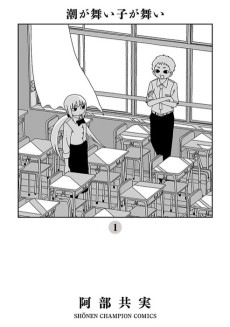 MANGA ComedyShio ga Mai Ko ga Mai
MANGA ComedyShio ga Mai Ko ga Mai MANGA ComedyPonkotsu Ponko
MANGA ComedyPonkotsu Ponko MANGA ComedyDainana Joshikai Houkou
MANGA ComedyDainana Joshikai Houkou
SCORE
- (4.05/5)
MORE INFO
Ended inOctober 28, 2016
Favorited by 283 Users

